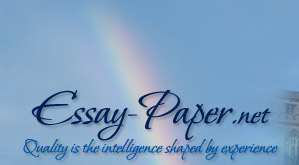|
Outline
A famous writer Robert Frost in his poem “The Road Not Taken” raises a philosophical question: whether a person should choose a well-trodden path in order not to be mistaken, or to choose another, unknown path, to be the first on this way and to lay track for other. It is up to everybody what road to choose, the main thing is that this choice must be his own choice. A person must be free in his decisions no matter what path he will choose – easy one, or perhaps a hard, unknown one.
- Introduction.
Robert Frost, a well-known writer, is famous for his poems that come from his life experiences. Each poem is a discovery of life, of self. Via poems Frost expresses the wise thoughts that are found in a form of simple words. Frost does not separate life and poetry, for him life is masterly depicted in poetry and poetry can be found in our every day life. His verses contain the mind and the emotions, as poetry is the first form of understanding. If somebody reads his poems at least once he will be captured with it and never forget the wise advices so truly embedded in form of words.
- Analysis of “The Road Not Taken" by Robert Frost.
“The Road Not Taken” is one of such poems where the author reflects on a decision that everyone faces throughout his life. A person is to decide what path to choose and his live and destiny depends on this choice that will determine an unseen future. People do not always have signs that will tell them the right way to choose. The sense is to choose whether a person will go by a well-trodden path or will become an investigator of an unknown way. In his “The Road Not Taken”, Robert Frost reflects on a choice, maybe one of the most important in life. Here the traveler is alone and he must decide what path to choose of two similar ones and this important decision will affect all his future life greatly.
"And sorry I could not travel both…" (2). A person makes a decision though the human nature is that he will always think about the other opportunity that could lead to a better life. Nevertheless, it is impossible to travel down every path in one lifetime and the author understands it and regrets even before he makes a decision.
Still, the traveler wants to foresee the future and he "looks down one as far as I could" (4). The way that will be chosen leads to the unknown and eventually the traveler’s look is lost in the infinity and he can only suspect what is waiting for him on this trodden path.
The traveler thinks about the other road and makes the important step: "Then took the other, as just as fair" (6), and chooses it as "it was grassland wanted wear." (8). That road was obviously not for an ordinary person as the majority of people chose another path. That is why Frost calls it "the road less traveled by" (19). This decision indicates that the author does not want to follow the crowd, he wants to do more, to achieve more and he chooses the road that is totally new and no one knows where it can lead…
Nevertheless, the traveler wants to choose both paths as he realizes that it is a serious decision, perhaps there will be no turning back, and he "doubted if I should ever come back." (15). He makes a decision that will change the direction of his life, though he understands he will regret having never gone back and having never tried another path… Yet he stays proud of his decision and admits that he made a choice and lived his live the way he did.
"I took the road less traveled by and that had made all the difference." (19, 20). Instead of a well-trodden path, be the first and choose a way where there is no path and lay a track for others. This is the major topic of the poem - to be a free person in all decisions of life and to be able to choose the path to your taste. In other words, there is no judgment and no moral here. The traveler made his own decision; he did what he wanted otherwise he would not be the same person he is now.
- Conclusion.
The paper briefly analyses “The Road Not Taken” by Robert Frost. The philosophy of life is that it is impossible to do everything in one lifetime. Everyone has to make a decision on which his future depends.
The author points out that the human nature is that one would always regret about another road, which he did not choose. The main topic is the regret that one cannot foresee what road is better to choose. And the reality is that, still, a person has to choose only one path of two and to see where it will lead him to.
|


